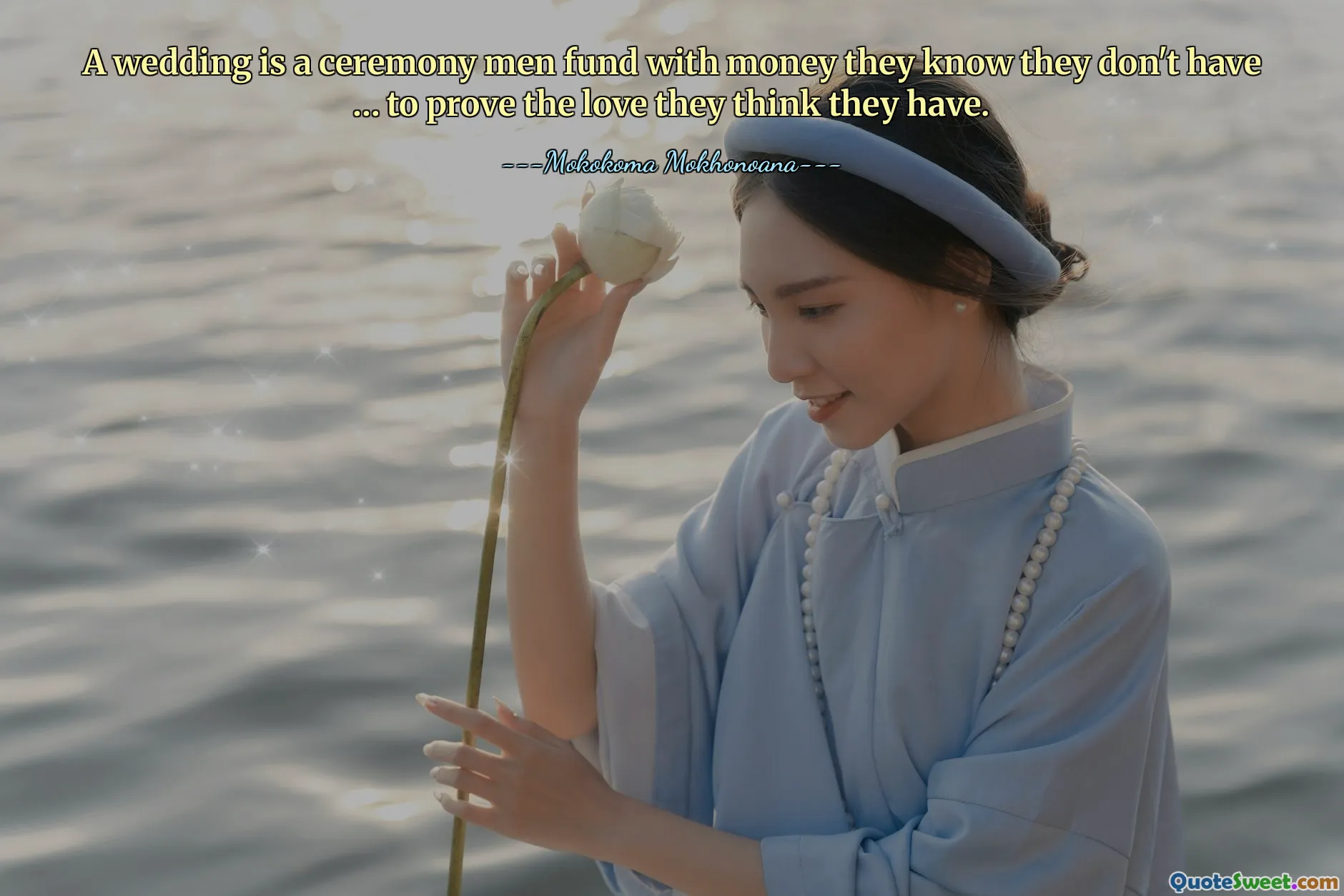
A wedding is a ceremony men fund with money they know they don't have … to prove the love they think they have.
This quote boldly highlights a paradox within societal perceptions of love and commitment. It suggests that many marriages are initiated with financial expenditure that surpasses a person's actual means, often in an effort to demonstrate a love that may not necessarily be tangible or fully understood. The emphasis on spending beyond one's ability exposes the societal pressures to display affection and devotion through material means, perhaps to meet external expectations or to impress others. This behavior points to a deeper longing for validation, recognition, or societal status, all of which are often mistakenly intertwined with the concept of love. The act of financing a wedding beyond one's financial capacity can lead to long-term consequences such as debt and stress, which might adversely affect the relationship itself. Additionally, the phrase implies that genuine love doesn't equate to material display but is rooted in authenticity and mutual understanding. The idea that love should be proven through costly rituals might obscure the real essence of what it means to connect with another person. Ultimately, the quote invites introspection on the true meaning of love, urging us to consider whether societal norms and material symbols are necessary for expressing genuine affection. It challenges us to differentiate between superficial displays and sincere feelings, emphasizing that authentic relationships are built on trust, respect, and perhaps simplicity—not monetary expenditure.
---Mokokoma Mokhonoana---











